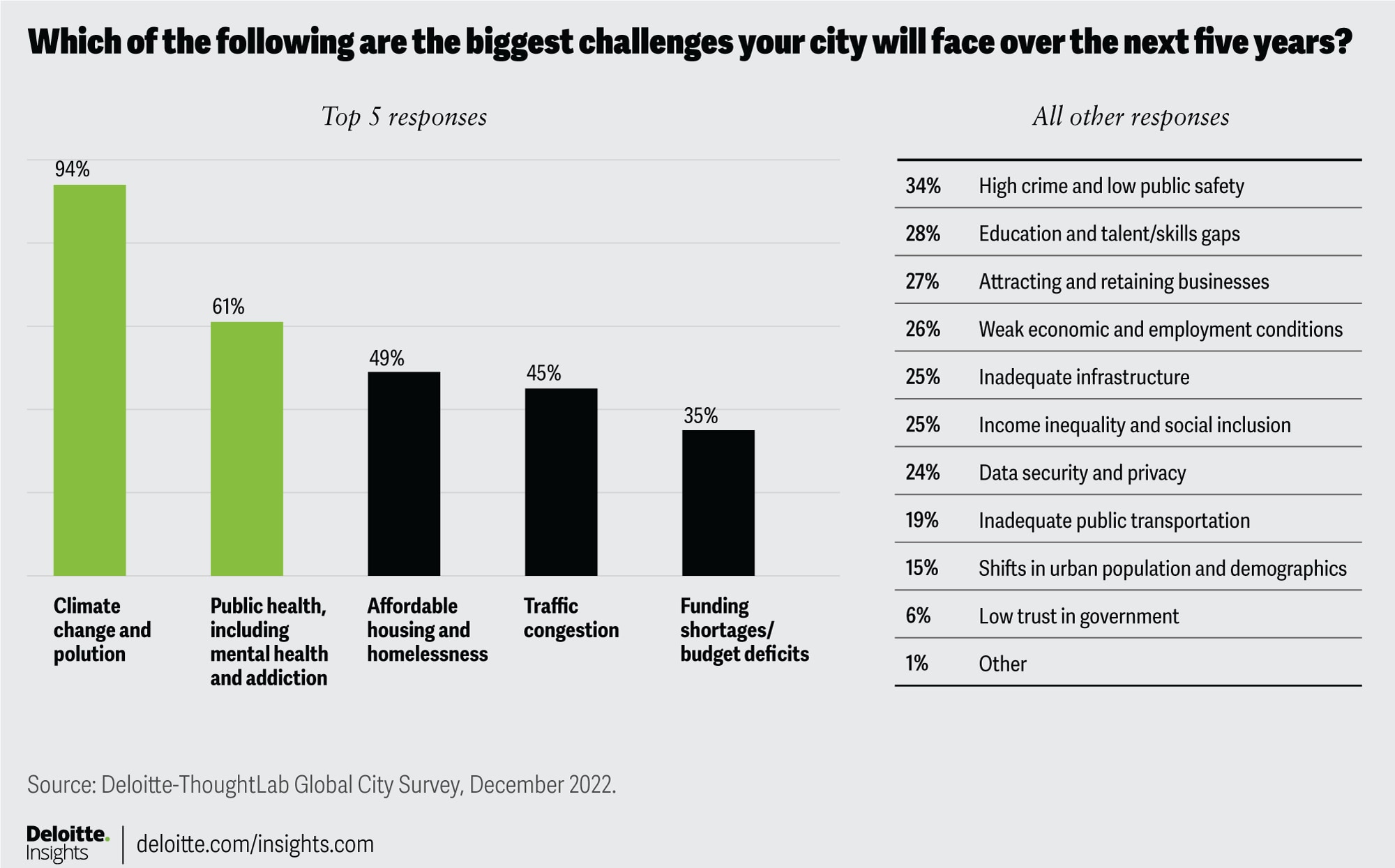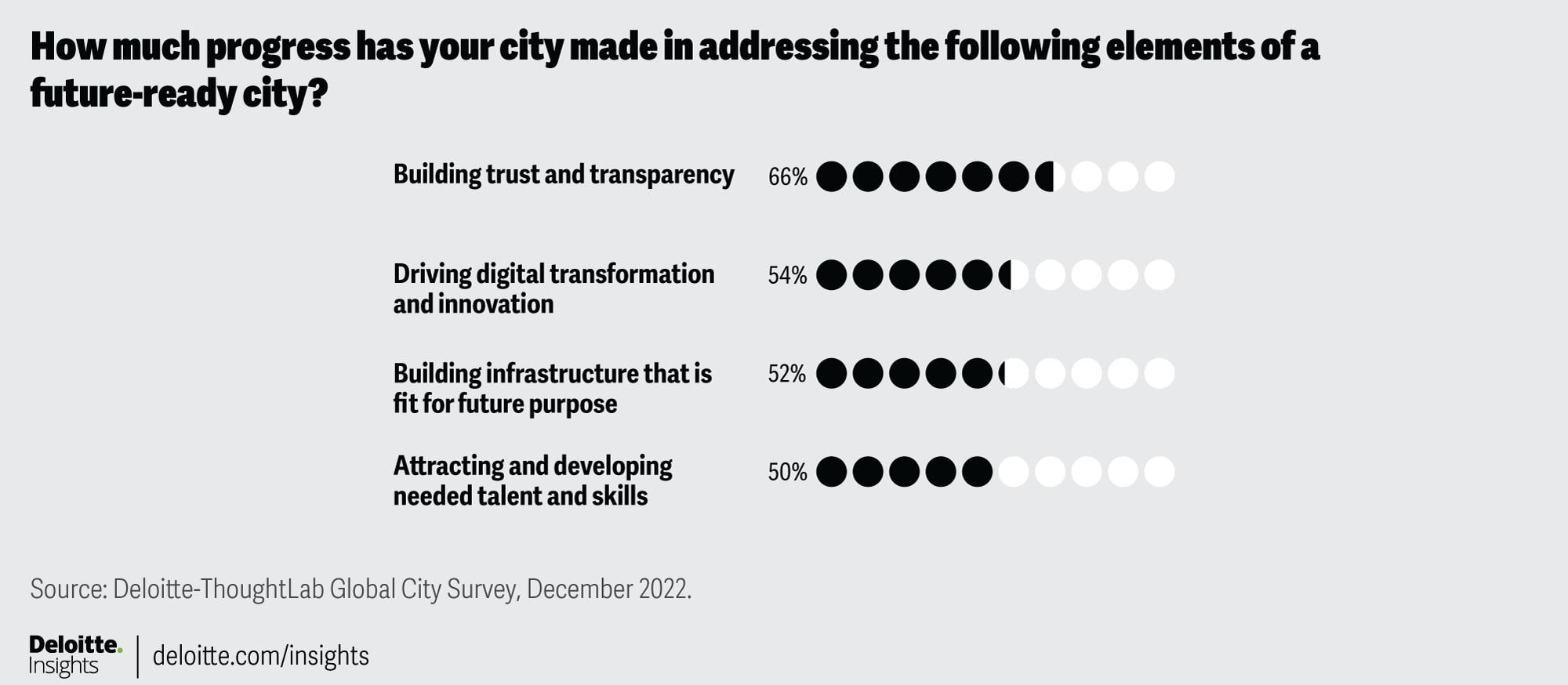Building the capacity for change in cities
Results from the December 2022 Deloitte-ThoughtLab Global City Survey show how cities worldwide are bolstering their resilience and adaptability to tackle present and future challenges.
Cities around the world are currently trying to rebound from the public health and economic difficulties thrust upon them by the pandemic and build resilience for future shocks. Realizing the goal of developing the city of the future requires city leaders to build up their cities’ capacity for change across multiple domains.
In December 2022, Deloitte collaborated with ThoughtLab to survey 200 city leaders and 2,000 citizens globally to better understand the ways in which cities are building their capacity for change to become future-ready. The survey suggests there is a clear movement toward rapid digitization and improvement in digital access in cities. Cities are also aiming to rebuild public trust, become more resilient to climate change, and develop a talent ecosystem for the future.
Climate change, pollution, and public health (including mental health) are the most pressing challenges cities face globally. The growing mental health and addiction challenges called out by city leaders could burden the social care services in multiple cities in the coming years. Beyond these, cities continue to deal with traditional regional challenges—such as traffic congestion and public safety in developing economies, and housing insecurity primarily in developed economies (figure 1).

As city leaders strive to address these challenges, they should also focus on managing citizen expectations. There is a gap between what citizens expect from their cities and local governments and what cities actually deliver. Recognizing such gaps, the city leaders surveyed reported creating plans to bolster the capacity for change to meet the evolving needs and expectations of its constituents. Areas where the surveyed city leaders reported making the highest progress include rebuilding public trust, driving digital transformation and innovation, building future-ready infrastructure, and addressing the talent gap in cities (figure 2).
